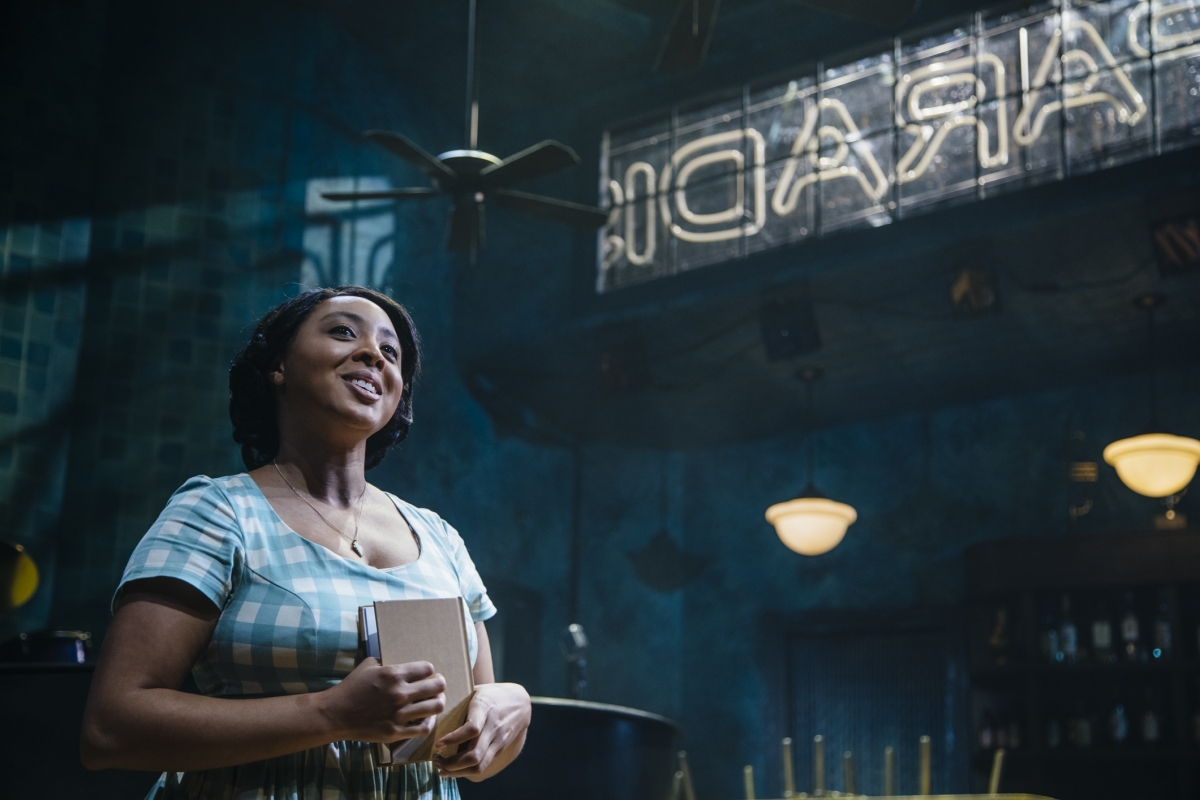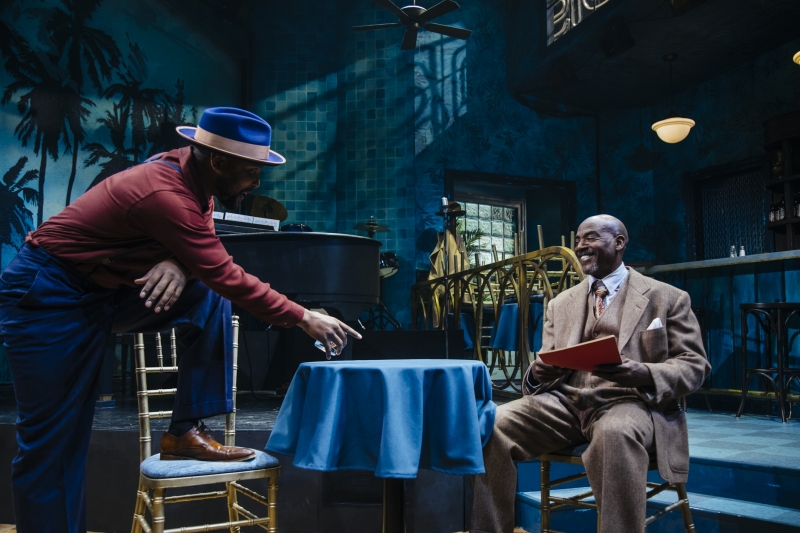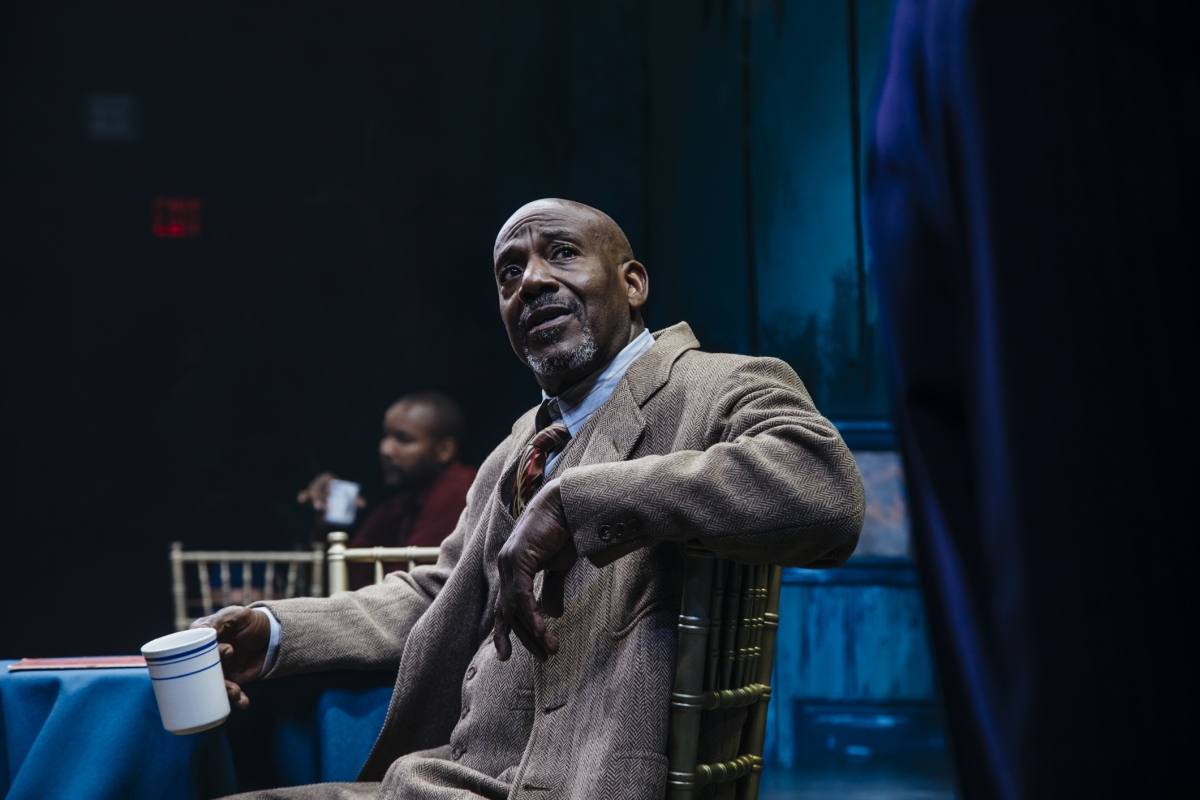Dominique Morisseau is a much decorated playwright and a glance at Wikipedia will tell you all you need to know about her numerous achievements. Her play Paradise Blue, now running at The Geffen Playhouse is part of her Detroit Projects (A 3-Play Cycle) which also includes her fine Skeleton Crew and Detroit ’67). Among her other accolades is a Tony nomination for the book of the Broadway musical Ain’t Too Proud — The Life and Times of The Temptations and, perhaps most notably, she is the recipient of a 2018 MacArthur Fellowship, its so-called “genius grant.”
The Geffen’s decision to stage Paradise Blue now, however, is something of a head scratcher, because it is not some of her best work. It is a story about Jazz musicians that is surprisingly derivative of too many noir plays and films of this stamp: the tormented magical trumpet player and jazz club owner, his sweet woman who loves and sustains him through thick and thin, the territorial wars in Detroit’s Black Bottom music district, the interloping sexy siren who gets in the way and… well, you can pretty much piece together the rest.

Beyond the all-too familiar themes, there is an assortment of other confounding decisions that affect this Geffen production. They begin with the curious stage set from veteran designer Edward E. Haynes Jr. that feels at once overwhelming and too cramped for the relatively small size of the Geffen stage. This is all the more baffling since a pivotal part of the play’s conversation describes the club’s real estate — an important issue in the scheme of things — as the largest and most valuable piece of ground in the neighborhood. Yet what the audience gets to watch is actors constrained to move rather gingerly around the furniture.
This tight fit, combined with a script that talks more than it acts, makes the lengthy build up of the production’s first half feel particularly drawn out. Things improve considerably in the second half, as alarming events, conflicts and revelations quicken the pace and finally get juices flowing.
That much works, but it’s not enough. Problems persist. Director Stori Ayers had her work cut out just getting the production to come along this far, but she crucially has not found a way to unlock the play’s emotional heart. Both Wendell B. Franklin as Blue, the tortured trumpet player and owner of the joint, who also is the character central to this story, and Tyla Abercrumbie as Silver, the troublemaking vamp who walks in uninvited and disrupts a lot of things, don’t quite deliver the high-level tension required to make this piece work.
Only the right charismatic sparks can save something as conventional as this play. We have to really feel those underlying emotions. But Franklin is too buttoned up even as he tries to let his emotions fly, while Abercrumbie is not quite able to release her inner femme fatale to draw the right responses and make the situations work. The tension and chemistry are simply missing in a play that deeply depends on both for its success.

Interestingly, it is Shayna Small, in the self-effacing role of Pumpkin, Blue’s devoted longtime girlfriend, who delivers the most touching and unassuming performance.
Pumpkin loves poetry, loves to help others, feeds everybody and keeps the club going by taking care of all the unglamorous housekeeping chores. It’s no wonder that P-Sam, the band’s percussionist, tries to woo her away from Blue whom he perceives as a damaged and dangerous man. As P-Sam, actor Alani Ilongwe delivers the production’s most passionate moments; he recognizes Pumpkin’s warm humanity and the tragic unfairness of her situation. He also provides all the energy and sizzle required to make us smile. He vents his restless ambitions and his frustrations with the status quo, while John Earl Jelks as the gentler, older Corn, the piano man, is the designated peacemaker in the group. These two guys are the production’s other most valuable assets. When the script offers them the opportunity to strut their stuff, these light up the stage.

It doesn’t solve the production’s overall lack of cohesion or the nagging absence of full engagement that plagues it, While the livelier action in the second half helps, it only points to the work that was not accomplished at the outset — or the work that just went wrong. Whether it can be corrected as the production continues its Westwood run is unknown. And saying much more about it here is mere speculation.
Featured image: l-r, John Earl Jelks, Alani Ilongwe, Tyla Abercrumbie & Wendell B. Franklin in Paradise Blue now playing at The Geffen Playhouse
All photos by Jeff Lorch
